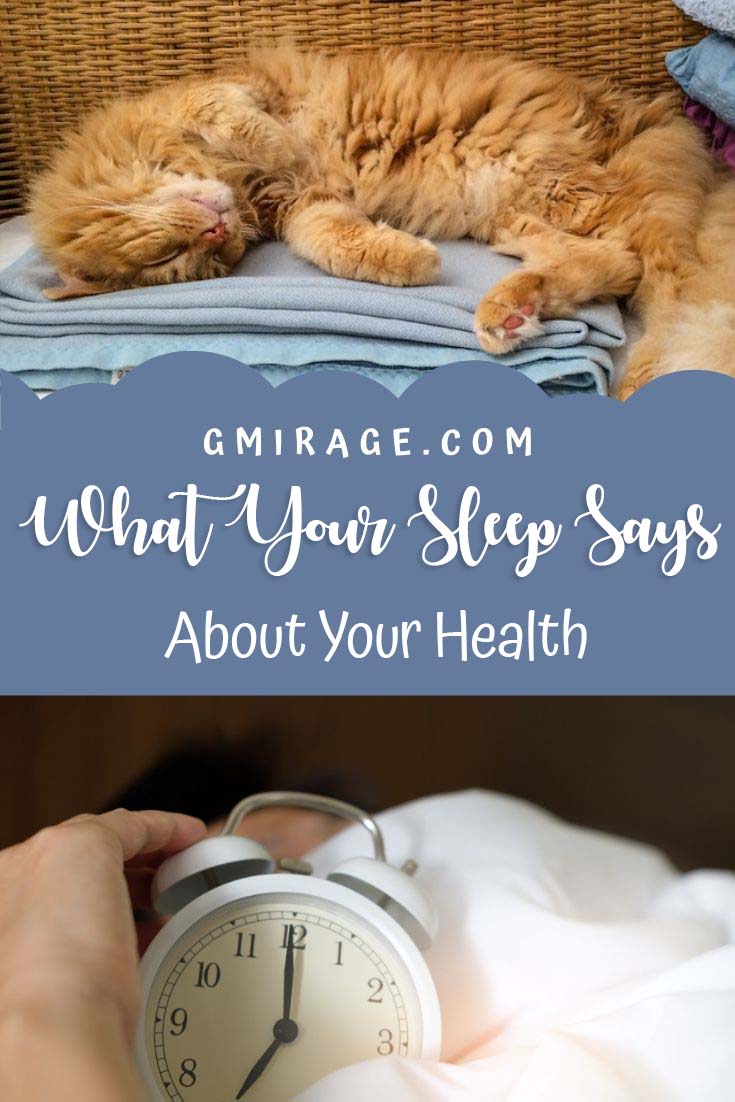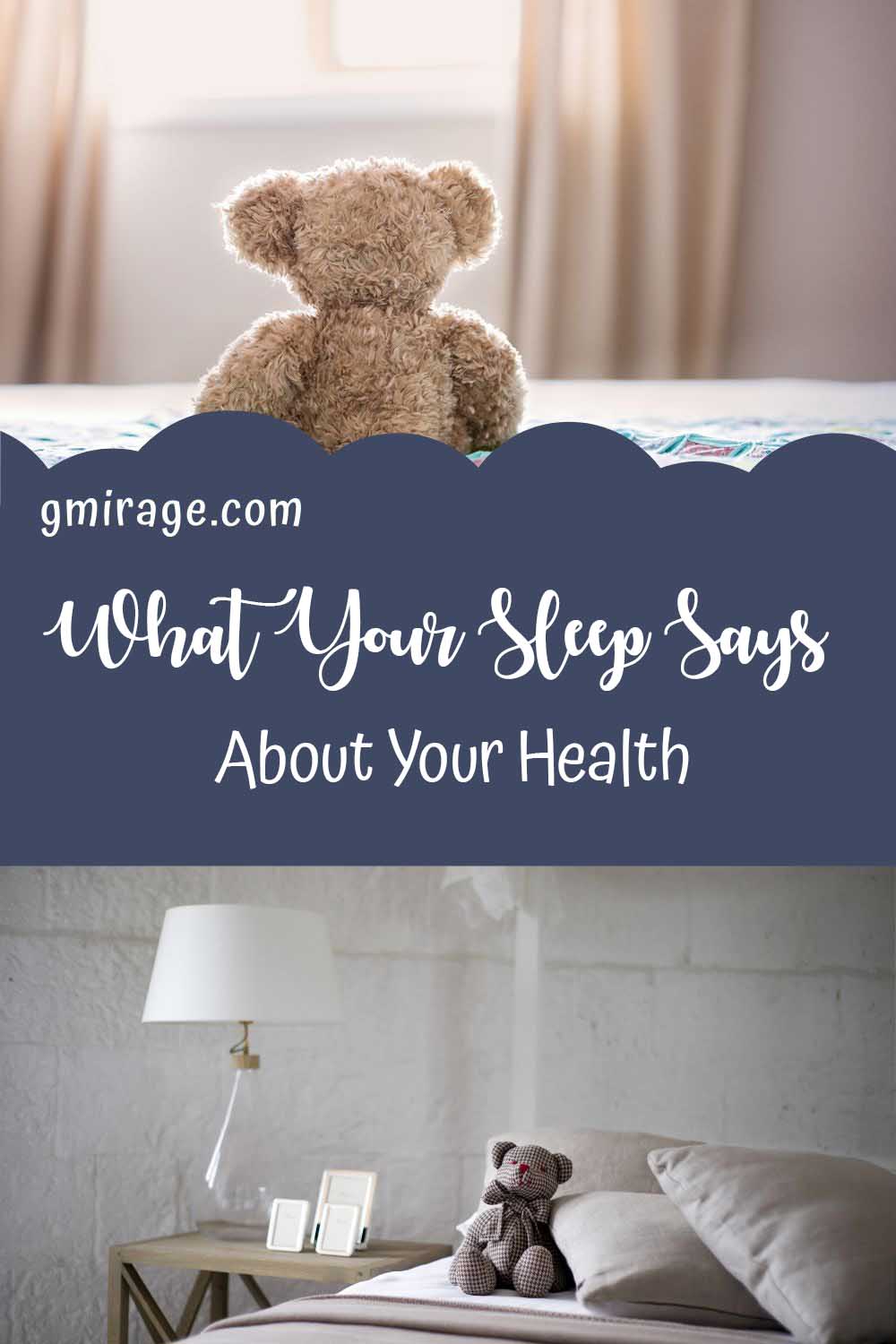Is there a relation between your sleep and your health? What your sleep says about your health is a topic probably talked about a lot. A good night’s sleep doesn’t just help you tackle the day’s challenges, but also keeps you healthy. Getting a full night’s sleep is a challenge, though, with many having trouble due to work-related stress and uncomfortable conditions. The resulting less-than-stellar sleep compounds negative health issues leading to subsequent disrupting sleep.
You can’t control everything stopping you from having a good night’s sleep… but those you can will make a big difference.
First, let’s understand the value of good sleep, and what your sleep says about your health. Then, explore ways to get a better night’s rest.
Table of Contents
The Health Benefits of Sleep
We all know getting too few hours will have us slogging through the day. Or, oversleeping having a similar effect where we’re feeling sluggish and slightly disoriented. But, what happens when you hit that perfect balance?
-
Energy
— Those receiving the appropriate amount of sleep gained sustained energy levels. Sleep contributes to the body’s metabolism while limiting spikes from extra hours of activity. And, the short burst of energy one may get from items like coffee or sweets.
-
Weight Management
— The same study (from above) found good, restful sleep also helped participants manage their weight. The appropriate sleep time gave participants the needed energy without the body’s craving to supplement energy via food (and snacking).

-
Memory
— Sleep gives our mind a moment of rest and refreshment. This clears unneeded short-term memories making way to cement the important information gained through our day. Sleep also lets our mind wander and hypothesize situations where we’re using these newfound skills.
-
Stress Management
— It’s hard to feel stressed when sleeping! This downtime can help the body relax its muscles stopping physical anxiety triggers. And, let stressful thoughts pass.
-
Heart Health
— The lowered stress from sleeping improves our heart health. The daily stress mixed with high blood pressure and many other heart conditions compounds. A solid night’s rest relaxes the physical stress we put on our body + the added benefit of weight management and energy to perform activities like exercise!
Plus, let’s not forget how it lowers our irritability and “resets” our day. We wake up feeling refreshed and ready to take on the new day. We’re inspired from our dreams and have the energy to tackle our daily goals.
A Better Night’s Sleep: How To
So, now that we know the benefits of sleep… how do we get it?
Let’s start with a process:
Bedding
Your bedroom should house the highest quality mattress you can afford. A memory foam mattress, for example, will provide the much-needed support for your personal sleep profile. This allows your body to drift quickly into sleep and remain sleeping vs feeling uncomfortable/tossing with traditional box-spring mattresses.
You should also consider heavier blankets as their extra weight creates a psychological comfort (like being held). Or, testing different pillows to find one with ample support and comfort vs the one you haven’t replaced for years.
 Pre-Sleep Routine
Pre-Sleep Routine
Everyone is different but consider this routine:
- Turn down the AC 1-2 degrees to chill the room
- Take a nice, hot (but short) shower to get clean
- Remove all distractions (TV and phone)
- Do a bit of light reading or listen to noise/podcast on very low levels
The mix of feeling clean, cold air hitting your warm body, and white noise will likely help you relax and drift to sleep.
Watch What You Eat
Sleep health is part of your whole health — and this includes what you’re eating during the day and leading up to the end of the night. This comes as no surprise, but try your best to eat a good, healthy balanced diet checking off all the boxes of protein, fats, and carbs.
Likewise, avoid foods that will disrupt your sleep — like:
- Caffeine
- Heavy late-night foods
And, instead, try to get some good tryptophan foods in you like yogurt, beans, and oats during the day to help you feel sleepy by the time you’re ready to wind down.
Do What Works For You
Our sleep profiles are wildly different from others due to daily routines, stress, relationships, and more. There’s no real “one-size-fits-all” approach to a good night’s sleep. So, we recommend trying a mix of things you’ve learned in this post with what you’ve found already effective — experiment!
Try something different each night and see what works best for you. Who knows? Maybe you’ll find the perfect balance to get that good night’s rest and gain all the health benefits it brings!
|
|
|










